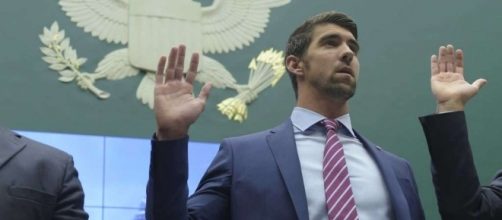We all know about American swimmer Michael Phelps, probably one of the most celebrated athletes in the (summer) Olympic Games. Heck, he’s practically the most-decorated Olympian of all time – he’s got 23 medals to prove it. From Athens 2004 up until Rio 2016, he was cleaning up lots of gold, several silver, and a few bronze medals. He was really good. But in the wake of major investigations into the subject of athlete doping in the games has made him not so appreciative of his achievements due to the most likely situation that he has not been in an international competition where his fellow swimmers were “clean”, as it were.
Call for more vigilance
Now retired, the 31-year-old Phelps appeared on a US Congressional hearing Tuesday, February 28 to urge them into improving their anti-doping procedures in sports. It was there that he publicly made known his feelings of discomfiture at not competing in a field totally clean of performance-enhancing drugs. "I know that when I do stand up in the US, I know we're all clean because we're going through the same thing,” he said. "We're going through the whereabouts, the out-of-competition test. We're doing all of that stuff.” He then called for a more comprehensive policing of sports doping throughout the world, something he feels “must be done now.”
Maryland's Gold Olympian Michael Phelps spoke to Congress today about the anti-doping system. pic.twitter.com/doQLg29Wjy
— DC Maryland Virginia (@DMVFollowers) February 28, 2017
It should be remembered that the Summer Olympics in Rio last year were very much affected by the shockwaves generated by the McLaren report which blew open the case of extensive state-sponsored doping in Russia, which very narrowly escaped being slapped with a blanket ban to participate.
President Vladimir Putin leads his government in denying government involvement in drug distribution and use among its athletes saying, "There has never been any institutional conspiracy to conceal positive doping tests in Russia and there never will be, on the contrary, doping will only be fought against."
Dark clouds
Before showing at the hearing on improving anti-doping measures, Phelps has written a testimony, some 1,300 words long, relating his misgivings whenever he heard rumors of doping athletes in major competitions like the Olympics, more so if the suspicions were proven. He noted his difficulty in understanding how it got on even while he and his teammates struggled with the scrutiny.
"I watched how this affected my teammates too. Even the suspicion of doping is disillusioning for clean athletes," he declared.
In addition to Phelps, other witnesses at the hearing that Tuesday included 2004 Olympic shot put champion, Adam Nelson, US Anti-Doping Agency CE Travis Tygart, IOC medical and scientific director Dr Richard Budgett, and World Anti-Doping Agency deputy director general Rob Koehler.

